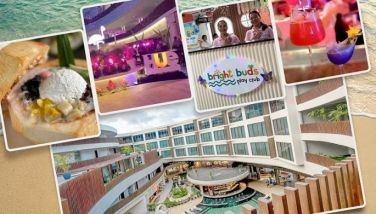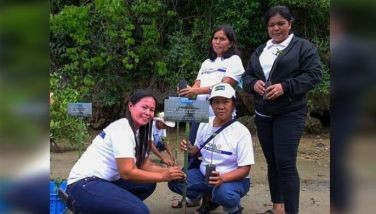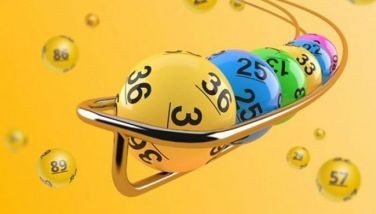Kota Kinabalu offers that 'small city feeling'
KOTA KINABALU, Sabah – Roaming the streets of this capital city for pasalubong at bargain prices, a traveler from the Philippines asked the one manning a store in English or even attempted to speak in the vernacular.
A group of Filipino journalists shopping at a night market spoke among themselves in Tagalog as they figured a way to get back to their hotel, thinking those manning the stalls could not understand what they were saying.
But in both instances, a vendor would speak up and say, “Pilipino kayo (Are you Filipinos)?”
Not only do many people in this capital city of Sabah look Filipino, a Pinoy traveler would actually be surprised to realize that a number of those who have found home here actually hail from the Philippines.
“Tahimik dito (It’s peaceful here),” said a Filipino vendor who hails from Mindanao.
There’s even a thrift market referred to as the “Filipino market,” as the stall owners are Filipinos.
Last year, Filipino tourists in Sabah, Malaysia numbered about 30,000, according to Gordon Yapp, deputy general manager of the Sabah Tourism Board.
Yapp said they only started promoting Sabah to the Philippines about three or four years ago. The number of Filipino tourists still lags behind those from China and Korea.
There are now three airlines flying directly from the Philippines to Kota Kinabalu with South East Asian Airlines now having direct flights from Clark, Pampanga. SEAIR recently invited a group of Filipino journalists to its maiden flight to Kota Kinabalu.
SEAIR is the Philippines’ second oldest airline, and is the first airline based in Clark. It now offers the lowest fares to Kota Kinabalu and Clark.
“Using the new 144-seat jet aircraft, SEAIR projects monthly air passenger traffic in Clark to increase by more than 60 percent or an additional 200,000 passengers annually,” SEAIR president Avelino Zapanta said.
SEAIR vice president for commercial affairs Patrick Tan said they are offering roundtrip flights every Tuesday, Thursday and Saturday at 15:05-17:05 for Clark-Kota Kinabalu and 17:35-19:35 for Kota Kinabalu-Clark.
‘From mountain high to ocean deep’
According to Yapp, the tourism campaign of the state of Sabah is “completely different” and separate from that of Malaysia, which has the tagline “Malaysia Truly Asia.”
For Sabah, it is “From mountain high to ocean deep” and “Sabah naturally,” Yapp said, noting that the campaign aims to “promote more of our nature.”
“Peninsula Malaysia and Sabah are completely different. A lot of our guests tell us that when they go to peninsula Malaysia (and) they come to Sabah, (it’s) completely different,” Yapp said.
He said Kota Kinabalu has the “small city feeling.” It is a city, but unlike others, it is not too busy. “It’s not commercialized yet,” he said.
Yapp said even the funding for Sabah’s tourism campaign comes solely from the state government.
“In the beginning, they (federal government) were not too happy… When we used to say ‘Sabah, Borneo,’ they would say ‘Why Borneo?’ When you promote in Europe, they have this feeling that Borneo is very exotic,” Yapp said.
A melting pot of different indigenous and immigrant groups, Sabah’s population of slightly over 3.2 million comprises over 30 different races and more than 80 dialects.
The indigenous groups in Sabah include the Kadazan/Duzun, Bajau, Muru, Fungus, Lotud, Brunei, Orang Sungei, Kadayan, Bisaya and many other subgroups.
The Mari-Mari Cultural Village features the traditional houses of these Sabahan ethnic communities. It is located in remote Kionsam, Inanam, which is about 25 minutes away from the city.
“Mari-Mari,” which literally means “come-come,” offers travelers the experience of witnessing tribal folk demonstrate the art of blowpipe-making, fire-starting using bamboo, and even tattoo making.
Exotic wildlife, clear waters
Only 15 minutes away from the city via speedboat is the Tunku Abdul Rahman Marine Park. It is composed of five small islands (Gaya, Mamutik, Manukan, Sapil and Sulug) and undamaged coral reefs.
The best coral reefs in this area are found around Manukan, Mamutik and Sulug. On Manukan Island, even those snorkeling near the beach are greeted by small fish seemingly undisturbed by human company.
At the Lok Kawi Wildlife Park in Kota Kinabalu, some 70 hectares has been devoted to the preservation of the endangered animals of Borneo.
Developed by the Sabah Wildlife and Forestry Department, the park has a “primate zone,” which features exotic wildlife, including orangutans and proboscis monkeys (named for their prominent bulbous noses).
For birdwatchers, the Kota Kinabalu Wetland Center is located just a mile away from the city center and has recorded sightings of more than 80 species of birds.
Mt. Kinabalu
Mt. Kinabalu is Southeast Asia’s highest peak and the 20th most prominent mountain in the world. It is located only 30 minutes away by bus from Kota Kinabalu.
Mt. Kinabalu, which is 4,095 meters or 13,435 feet high, stands in the middle of the Kinabalu National Park and is the first Malaysian UNESCO World Heritage Site.
The Kinabalu National Park is one of the most popular ecotourist destinations in the region and is considered an important biodiversity site with more than 4,500 species.
Mt. Kinabalu offers climbers a challenging trek or a relaxing hike. It is the venue for the “world’s toughest mountain race,” the Mt. Kinabalu International Marathon, slated on Oct. 14.
According to Yapp, the biggest contingent in the “climbathon” this year comes from the Philippines, with some 30 participants.
Seafood
Amid all these activities, first-time travelers must try the lat zi hai (crab in hot and spicy sauce), buttered prawns, kam heong la la (stir-fried fragrant clams), and sayur manis or fern cooked with belacan (prawn paste) at the Kampung Nelayan Floating Restaurant, located just 10 minutes away from the city center. There are also nightly cultural performances for diners here.
At the Ocean Seafood Restaurant and Port View Seafood Village, guests even have the option to choose their crabs, shellfish, lobsters and fish in a tank to be served on their tables.



















